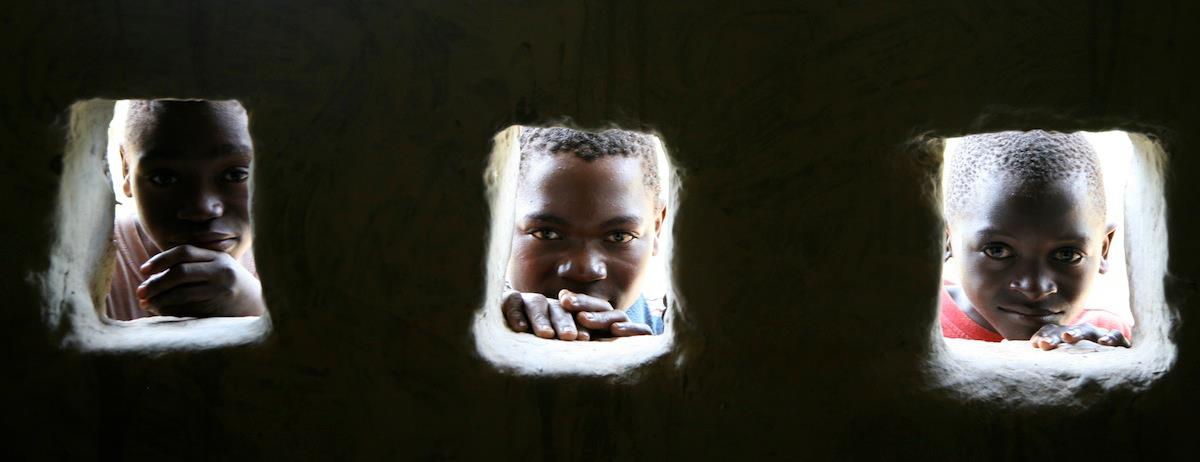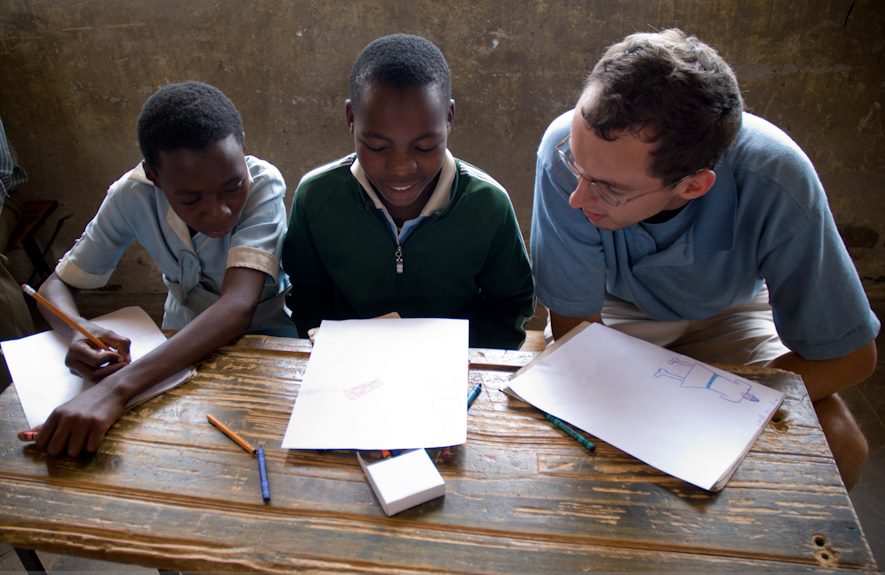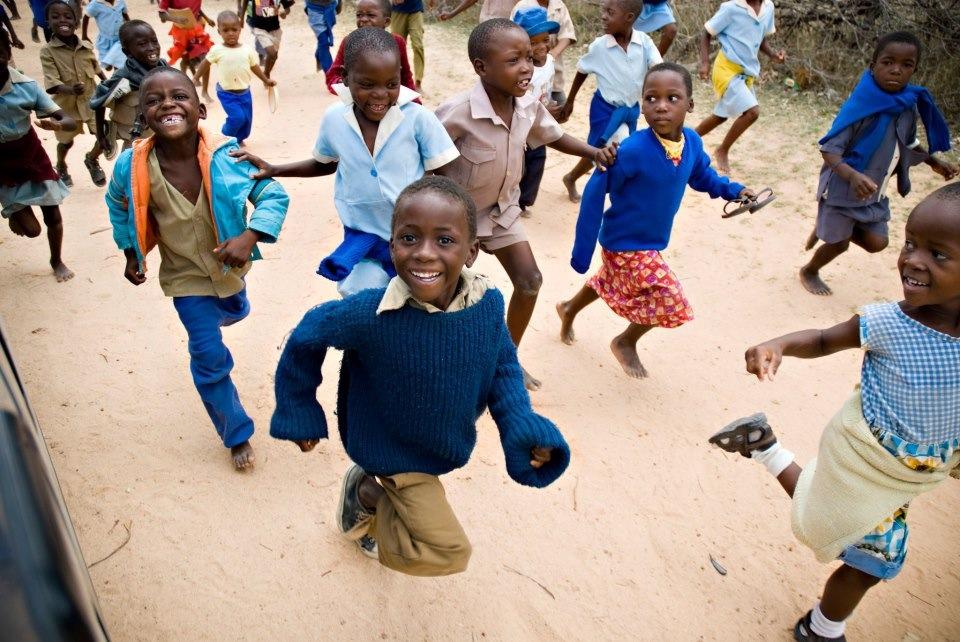
13 Feb Innovating Orphan Care in Zimbabwe, Zambia & Malawi
Catalyzing a Sustainable, Community-Based Response to the Orphan Crisis, through the Local Church
January 12, 2017: My heart squealed with joy, as I watched cute pink piglets seemingly grow before my eyes. Far from my home in Pennsylvania, I had come to this remote area about an hour outside Livingstone, Zambia to see these adorable, but smelly, pigs. They were the beginning of a realized dream. I fondly remembered when one of the Zambian volunteers in the church had said to me 6 months before, “I never knew that my love for raising pigs could someday help my church meet the needs of vulnerable children.” That day was today.
Just 2 hours later, I would be sitting on a handmade wooden stool listening to a young girl share about her love for art and science. After being named Head Girl (top female student) for the 7th grade, she had seemingly boundless hope. 8th grade would begin in a couple days. Her poise communicated a desire to learn everything and anything that could help realize the dreams she feared were lost when her dad died a few years back.
What this girl would likely never know about is the role a ministry I lead plays in her life. She also may not learn about the piggery a local church has created to help generate income to send her to school. She also may never learn about me. I’m fine with all of that because so often investing quietly in the everyday heroes of our world is far more effective when we are unknown, though our initial natural desires draw us to make a name for ourselves.
I lead a ministry called Forgotten Voices, with a mission of “demonstrating the love of Jesus Christ by equipping local churches in southern Africa to meet the physical & spiritual needs of children orphaned by AIDS in their communities.” In 2004, at the age of 24, I had come to Zimbabwe on a 2-week trip with my church. Originally set to begin graduate school at Harvard, my pastors asked me to not go and instead come on the Zimbabwe trip to use my work experience in economic development.

‘Children Writing About Hope, Zimbabwe’, Courtesy of Krista Photography and Forgotten Voices.
On that trip and in the many more that have followed, I learned that someone always finds vulnerable children. Always. They are never alone for very long. Those seeking to find vulnerable children are either offering life and hope or death and despair. There isn’t a middle ground. It’s a race and the apathetic aren’t looking.
I founded Forgotten Voices to innovate orphan care through the local churches of southern Africa because those of us offering life & hope need to go faster and be more effective. Just in the 3 countries where we now work (Zimbabwe, Zambia, Malawi), the number of children orphaned every day would fill 14 school buses to capacity. Though the Western response to this crisis has traditionally been to build orphanages, a response we rejected for our own kids nearly 100 years ago, the local church in southern Africa is providing a resoundingly different response. People of my Christian faith are called to look after widows and orphans. Did you know that 75% of all Zambian families care for at least 1 child biologically not theirs? (Operation World, 7th Edition) In the last 100 years, the number of Christians in Africa has grown from 9 million to 540 million. (Sagamore Institute, 2013) Local churches are growing faster than the orphan crisis.

‘Children Running, Zimbabwe’, Courtesy of Krista Photography and Forgotten Voices.
These growing churches in southern Africa are asking us to help them create custom plans for orphan care so they can learn to assess the needs of each family caring for each vulnerable child. Then, we make a quiet investment into their plans, where the people who benefit (children and families caring for them) never know about us, but only about their local church, whenever possible. Finally, we are helping equip local churches with sustainable income projects for the church and each family, so the work goes on.
By equipping local families caring for vulnerable children, who uniquely know the needs of each child already, we can all reach far more children faster and more effectively.
Fundamentally, our partnerships are based on creating trust between those who want to help (you and me), but often don’t know how, and those local families/churches who do know how, but often need a financial catalyzing force to keep going. Through first hand experience and economic development research, I’ve learned that our work is most effective when our role is unknown, whenever possible. Since our first partnership to equip 1 church to help 120 kids in Zimbabwe to today, where we are reaching over 100 local churches and over 12,500 beneficiaries a year, we are committed to listening well and quietly responding, even if we are forever unknown. By 2020, we aim to reach 20,000 children a year and are exploring ways to share our quiet investment methodology to reach even more.
Key lesson: You aren’t asked to save the world, but be faithful to doing your part the best way possible. As I remind myself everyday and those that work with me, “God doesn’t ask us to be God. He asks us to be faithful.” (you can read more about my journey to realize I’m not asked to be a hero, but a human). Do good work, even if no one ever knows. You know. Enjoy the journey.
Ryan and his wife, Katie, live outside Harrisburg, PA with their three young children. He enjoys Dr Pepper, the Red Sox, making animal sounds, and anything with kids. He is the founder and President of Forgotten Voices, as well as a Praxis Fellow. He earned his Masters in Public Policy from Harvard’s Kennedy School. Ryan is also a proud Falcon, graduating from Messiah College with a BA in Politics. You can connect with him on Twitter at @ryanmkeith and DearTired.com.




No Comments